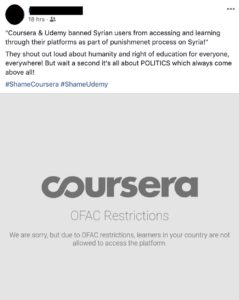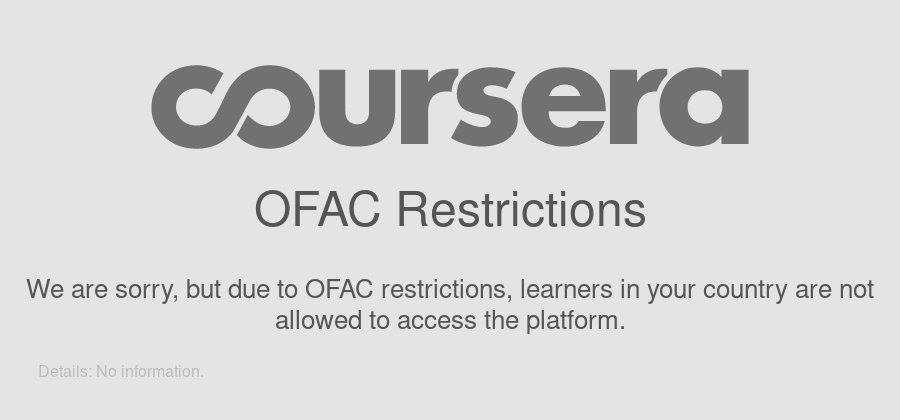Though Coursera did not respond to SMEX’s request for comment, the restriction of both platforms in Syria is likely linked to the reimposition of the Iran sanctions.
Previously, Coursera totally restricted access to its content in Syria in 2014, but quickly reinstated access to the majority of the courses, limiting only a select number of high-level STEM (Science, Technology, Engineering, and Math) courses, which remains problematic. Later in 2014, Coursera also managed to allow users in Sudan and Cuba, two other countries where it had been previously blocked, to access the platform.
At the very least, these for-profit companies should be transparent about the restrictions they impose as a result of OFAC sanctions. While Coursera does have an easy-to-find disclaimer explaining that some content may be limited in Crimea, Cuba, Iran, North Korea, Sudan and Syria, Udemy couches a brief mention about sanctions in the content and behavior section of its difficult to navigate terms of service.
Even Coursera’s disclosure lacks specifics about the type of content that is blocked and does not distinguish between the countries where the content is completely blocked and the countries where only a limited amount of content is blocked. Moreover, neither Coursera nor Udemy posted an alert when the new restrictions came into place as Syrians on social media voiced their complaints about the sudden restriction.
Yet, the majority of the blame for restricting this online learning tool lies with OFAC. The office should completely remove online learning platforms from sanctions and allow Syrians, and citizens in Iran, Sudan, and the other countries where the platforms are currently blocked or limited, to access all courses.


